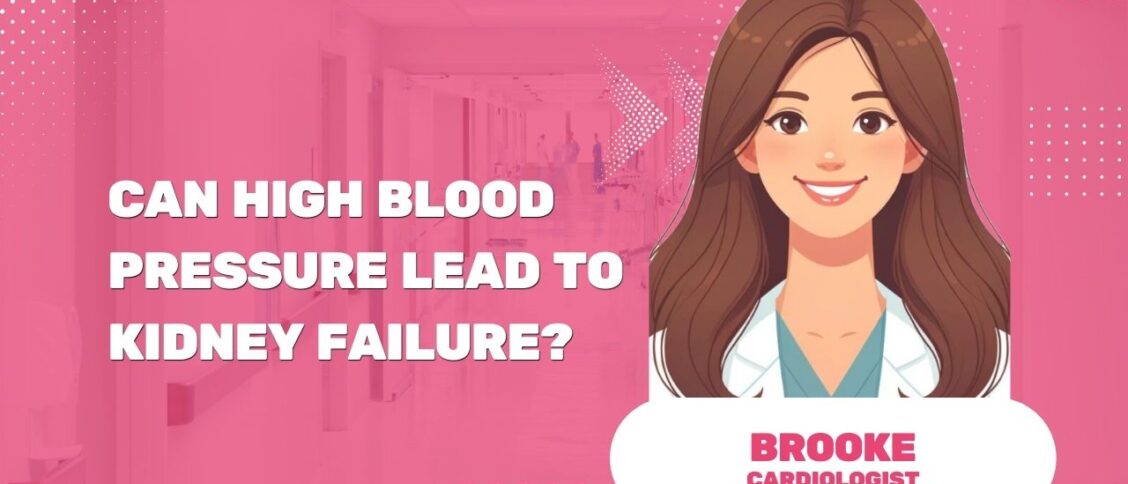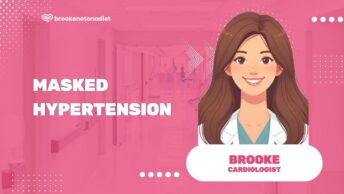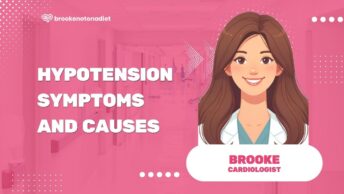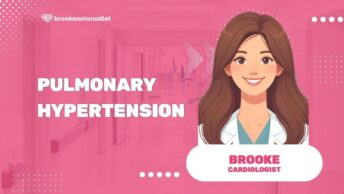High blood pressure isn’t just a heart issue. It’s a silent killer that can lead to kidney failure. In my years of medical research, I’ve found that it’s one of the leading causes of kidney disease.
Understanding the connection between high blood pressure and kidney failure is crucial. It’s not just about knowing the facts, it’s about taking control of your health. In this article, I’ll shed light on how these two conditions are linked and the steps you can take to prevent this deadly duo.
Let’s dive into the world of blood pressure and kidneys, and unravel the mystery behind their complex relationship. From causes to symptoms, from prevention to treatment, I’ve got you covered. Stay tuned as we navigate through this crucial health topic.
Understanding High Blood Pressure and Kidney Failure
The connection between high blood pressure and kidney failure boils down to the intricate network of arteries and filters in our kidneys. Here’s a simplified depiction:
| Blood Pressure Range | Implication |
|---|---|
| Normal (below 120/80 mmHg) | Your kidneys are getting the exact pressure they need for filtration. |
| Elevated (120-129/<80 mmHg) | This could strain your kidneys over time. |
| High (130-139/80-89 mmHg) | Extended periods in this range can lead to kidney damage. |
| Hypertension (140+/90+ mmHg) | This pressure could cause kidney failure if not managed properly. |
Moving on to understanding this crucial relationship:
- When blood pressure is high, the force can damage the delicate blood vessels in the kidneys.
- If this continues over time, the kidney filters (glomeruli) may scar and stop working effectively.
- To make matters worse, the kidneys respond to high blood pressure by secreting a hormone that further increases blood pressure—forming a vicious cycle of kidney damage and more pressure.
What this means for us is that continuously checking blood pressure can be a vital step in identifying an impending kidney issue early. One tool you can use at home for this is a blood pressure monitor which will provide readings for you to track over time.
Next, we look into some revealing symptoms of kidney damage often caused by high blood pressure:
- Swelling in hands, feet, or ankles
- A feeling of fatigue or weakness
- A loss of appetite
- Nausea and vomiting
- Persistent itching
- Shortness of breath
- Issues sleeping
These symptoms however, often don’t surface until kidney damage has progressed. That’s why it’s important to take preventive measures and understand the risk factors of these conditions.
The steps for lowering blood pressure are also beneficial to reducing the risks of kidney failure.
- Maintain a healthy weight
- Eat a balanced diet low in sodium
- Limit alcohol intake
- Quit smoking
- Exercise regularly
- Limit stress
- Check blood pressure regularly
Causes and Risk Factors
Understanding the relationship between blood pressure and kidney failure is critical. Various factors can influence your blood pressure and your risk of developing kidney disease. Let’s dig deeper into these aspects.
Primary Hypertension
Known as “the silent killer”, primary hypertension, also referred to as ‘essential’ hypertension, is a type of high blood pressure that doesn’t have a known secondary cause. It’s the most common type of hypertension, affecting nearly 85 of hypertensive patients.
Primary hypertension could result from a combination of factors:
- Genetics: A family history of hypertension can significantly increase risk.
- Age and Race: Risk of developing primary hypertension increases as you age and is more common among individuals of African heritage.
- Lifestyle: Unhealthy lifestyle choices such as high salt intake, smoking, lack of physical activity, heavy alcohol use, and obesity contribute to the risk.
Secondary Hypertension
Unlike primary hypertension, secondary hypertension is high blood pressure caused by a specific underlying condition, often kidney disease. Keeping an eye on your blood pressure using a reliable blood pressure monitor can help you manage this form of hypertension effectively. Addressing the underlying cause may even eliminate the condition for good.
Chronic Kidney Disease
High blood pressure isn’t just a cause of kidney disease; it can be a result as well. When your kidneys are not working effectively, waste products and fluids can build up in your body, causing your blood pressure to rise. This is why checking blood pressure regularly is a must, especially if you’ve been diagnosed with kidney disease.
To manage kidney disease and mitigate the risk factors:
- Adopt a diet low in sodium and high in fresh fruits and vegetables.
- Regular exercise can go a long way in lowering blood pressure.
- Limit alcohol and quit smoking.
- Lastly, keep stress levels in check and maintain a healthy weight.
Remember, it’s always beneficial to comprehend these conditions thoroughly, but it’s equally essential to consult with a healthcare professional or a renal specialist for an accurate diagnosis and condition management.
The Link between High Blood Pressure and Kidney Failure
Understanding the connection between high blood pressure and kidney failure is critical. Fortunately, I’ve done my research and I’m here to share this significant knowledge with you. It isn’t as complicated as it seems. All you need is an open mind to grasp how these two health conditions are linked.
Damage to Blood Vessels
High blood pressure can cause serious damage to your body’s blood vessels, including those in your kidneys. Here’s how:
- High blood pressure makes the blood vessels around the kidneys narrow, weaken or harden.
- These damaged blood vessels are not able to deliver the necessary amount of oxygen and nutrients to the kidneys for them to effectively do their job.
- The kidnéys can’t clean blood properly anymore, leading to a dangerous buildup of wastes in your body.
Even with the most advanced blood pressure monitor, such damage is hard to detect without the right medical tests.
Impaired Blood Flow
The damage to blood vessels from high blood pressure results in impaired blood flow to the kidneys. This means the kidneys receive less oxygen and fewer nutrients than they need to properly function, leading to kidney disease and eventually kidney failure.
Some people might ask about blood pressure ranges. Each individual is unique so normal blood pressure varies. However, prolonged high readings pose a serious risk. Therefore, checking blood pressure frequently and maintaining a healthy blood pressure chart are essential for prevention.
Increased Pressure on the Kidneys
When your blood vessels are damaged and blood flow is impaired, there’s an increased pressure on your kidneys. They must work harder leading to kidney strain which might eventually lead to kidney failure.
Lowering blood pressure, therefore, becomes a significant preventive measure. Not only does it ease the strain on the kidneys but it also reduces the risk of kidney failure. Regular exercise, a balanced diet, and proper medication under medical guidance can all contribute to this cause.
With a better understanding of these factors, we’re all better equipped to maintain our health and keep these conditions at bay. Remember, prevention is always better than cure when it comes to health matters.
Symptoms and Diagnosis
The fight against high blood pressure and subsequent kidney failure begins with awareness of the symptoms and importance of early diagnosis. As I delve deeper into the specifics of these invisible problems, it’s crucial to pay attention to your body and any changes or discomfort you might experience.
High Blood Pressure Symptoms
High blood pressure, often touted as the ‘silent killer,’ might show up without any glaringly obvious signs. Couple this with the damaging effects it can have on your kidneys, and you’ve got a health problem you wouldn’t wish on anyone. Here’s what you need to keep an eye on:
- Dull headaches
- Shortness of breath
- Nosebleeds
However, these don’t occur until high blood pressure has reached a dangerous or life-threatening stage. Regular checks with a reliable blood pressure monitor can help identify any problem areas before things go south.
Kidney Failure Symptoms
On the other end of the spectrum, kidney failure symptoms can be a bit more conspicuous. The kidneys’ function decreases slowly over time, resulting in a gradual buildup of waste and toxic substances in the body. The symptoms vary as the condition progresses, but here’s what they generally include:
- Fatigue and weakness
- Difficult, painful urination
- Foamy urine
- Pink, dark urine (blood in urine)
- Increased thirst
Blood Pressure and Kidney Function Tests
To diagnose high blood pressure and evaluate kidney function, a series of tests are available. Regular monitoring of your blood pressure ranges can provide the first alert to potential issues. Apart from this, your doctor may suggest the following kidney function tests:
- Urinalysis: To check for abnormal substances in your urine, like protein or blood.
- Blood tests: To measure the level of waste products such as creatinine and urea nitrogen in your blood.
- Imaging tests: To get visual insights into your kidneys’ size and structure.
With regards to lowering blood pressure, adopting a balanced diet, regular exercise, and maintaining a healthy weight can help significantly.
Diagnosis isn’t the end of the world – it’s the first step to getting better. And as far as the battle against high blood pressure and kidney failure goes, it’s all about arming yourself with the right knowledge and tools, and pushing back with all you’ve got. Live your life with the same love and liveliness you’ve always had, just a bit more consciously.
Treatment and Management
Dealing with high blood pressure and kidney failure can feel overwhelming; but, the right treatment and management approach can greatly improve the quality of life. Let’s take a look at several different approaches including lifestyle changes, medications, and more intensive interventions like dialysis and kidney transplant.
Lifestyle Changes
Adopting healthier lifestyle habits is an effective first line of defence. Here’s where you can start:
- Balancing Diet: Opt for a diet low in saturated fats, cholesterol, and sodium. Incorporate more fruits, vegetables, and fat-free or low-fat dairy products into your meals.
- Regular Exercise: Engage in physical activities for at least 30-45 minutes most days of the week. Stick with exercising at moderate intensity.
- Maintaining a Healthy Weight: Aim for a body mass index (BMI) in the healthy range of 18.5–24.9.
- Monitoring Blood Pressure: Regularly checking blood pressure using a blood pressure monitor can help identify any potential risk of high blood pressure.
Make sure to discuss these changes with your healthcare provider before starting any new diet or exercise regimen.
Medications
Doctors often prescribe medications to manage high blood pressure and to slow the progression of kidney disease. These may include:
- Blood Pressure Lowering Medications: These drugs, also known as antihypertensives, work by relaxing blood vessels, reducing the amount of fluid in your body, or slowing down your heartbeat.
- Medications to Lower Cholesterol Levels: Statins may be prescribed to help reduce cholesterol levels, further decreasing the risk of heart and blood vessel problems.
Always make sure to take your prescribed medication as directed, and schedule regular appointments with your healthcare provider to evaluate effectiveness.
Dialysis and Kidney Transplant
For those who experience kidney failure, treatment options become more intense – you may need dialysis or a kidney transplant.
- Dialysis: During dialysis, a machine filters harmful wastes, salts, and fluid from your blood. This process takes over a major role of the kidneys when they are no longer functioning properly.
- Kidney Transplant: Some people may qualify for a kidney transplant, where a healthy kidney from a living or deceased donor is surgically placed in your body.
Navigating high blood pressure and kidney failure can be challenging, but armed with the right knowledge, tools, and medical advice, it becomes easier to make informed decisions about your health.
Preventing High Blood Pressure and Kidney Failure
The prevention of high blood pressure and kidney failure goes beyond just popping a couple of pills. It’s a lifestyle choice, an active decision to uphold a healthier way of life. So, let’s delve into that.
Healthy Diet and Exercise
First off, let’s talk about having a healthy diet and staying active. What we eat and how much we move directly impacts our blood pressure. Hence, there’s the necessity to create a balanced diet and establish a proper exercise regime. Now, when I talk about these factors, I’m not suggesting you spend hours in the gym or starve yourself. Instead, it’s about making small but profound changes.
Take a look at the stats below:
| Benefits | Diet | Exercise |
|---|---|---|
| Lower BP | 60 | 40 |
| Reduce Obesity | 70 | 30 |
| Improve stamina | 30 | 70 |
As for food, your diet should be low in salt and saturated fats. Lean toward fresh fruits, veggies, whole grains, and lean proteins. Each of these contribute toward lowering blood pressure.
As for exercise, strive to be physically active for at least 30 minutes most days of the week. It could be a brisk walk, yoga, swimming, or anything that gets your blood pumping. Regular exercise not only helps in lowering blood pressure but is also beneficial for your heart and kidneys.
Regular Blood Pressure Monitoring
Moving on to regular blood pressure monitoring. It’s important to have a blood pressure monitor at home. Doing regular checks will give us a sense of our body’s trends. This helps in early detection and prevention of any possible health hazards.
When you’re monitoring your blood pressure, familiarize yourself with what normal, at-risk, and high blood pressure ranges look like. This can be quickly done with a simple, yet efficient blood pressure chart.
Managing Underlying Conditions
Last but not least: managing underlying conditions. Things like diabetes, sleep apnea, and other health conditions could provoke high blood pressure and lead to kidney damage if not controlled. So keeping these conditions in check is crucial.
In essence, it’s all about having a balanced lifestyle where you’re mindful of what you eat and how often you move. Regular monitoring of your blood pressure and managing any underlying health conditions plays an integral part too. This isn’t about drastic changes but about consistent, positive shifts towards better health.
This way, you can reduce the risk of high blood pressure and kidney failure. The choice is all yours.
Conclusion
So, it’s clear that taking control of your health is crucial in preventing high blood pressure and kidney failure. Regular check-ups, a balanced diet, and consistent exercise are your best defense. Don’t underestimate the power of these simple lifestyle changes. They’re not just good for your blood pressure and kidneys, they’re good for your overall well-being. Let’s not forget the importance of managing any existing health conditions too. It’s all about making positive, consistent shifts towards better health. After all, your health is your wealth. Keep making those healthier choices, and you’ll be putting yourself on the path to a longer, healthier life.







